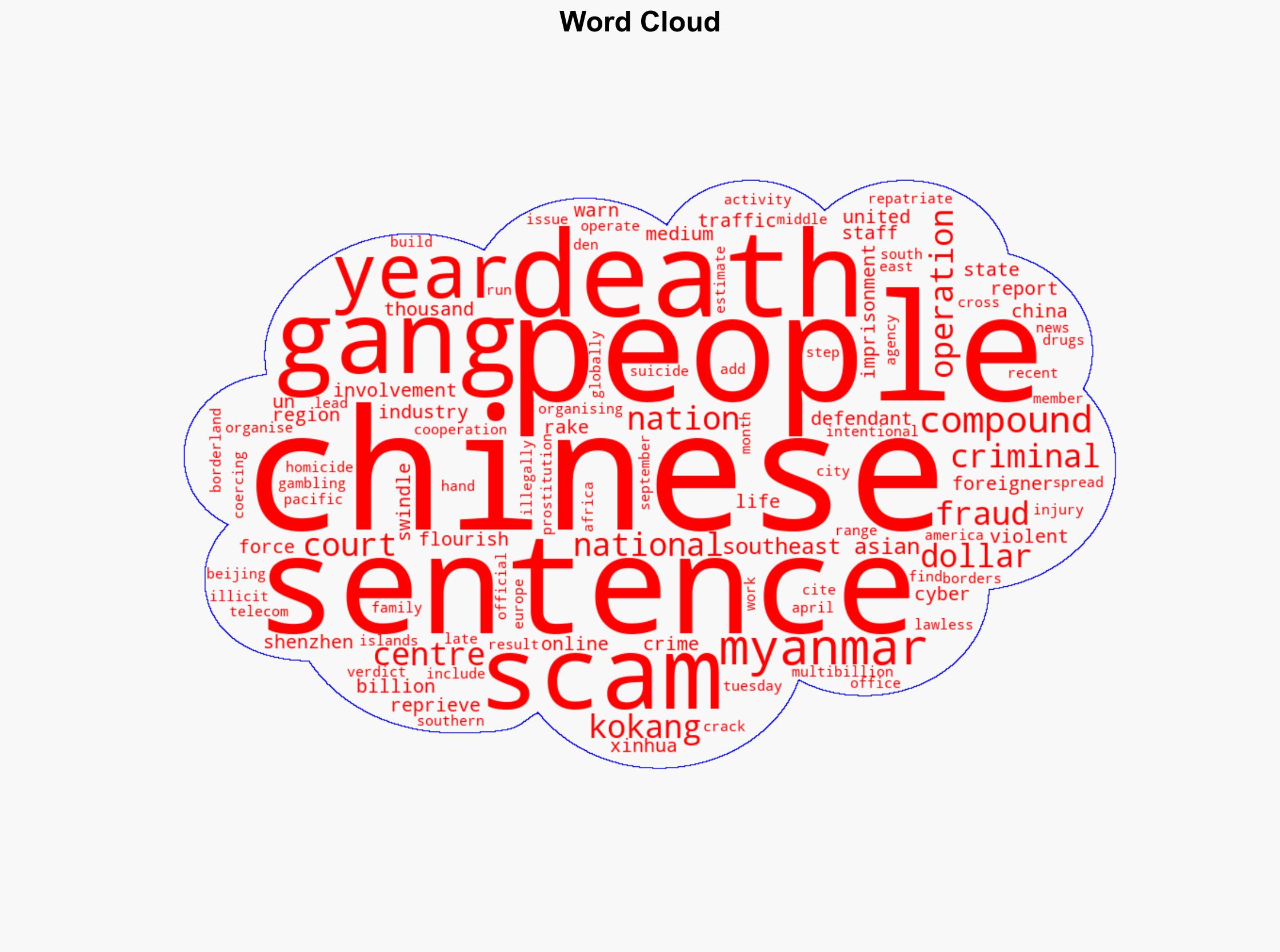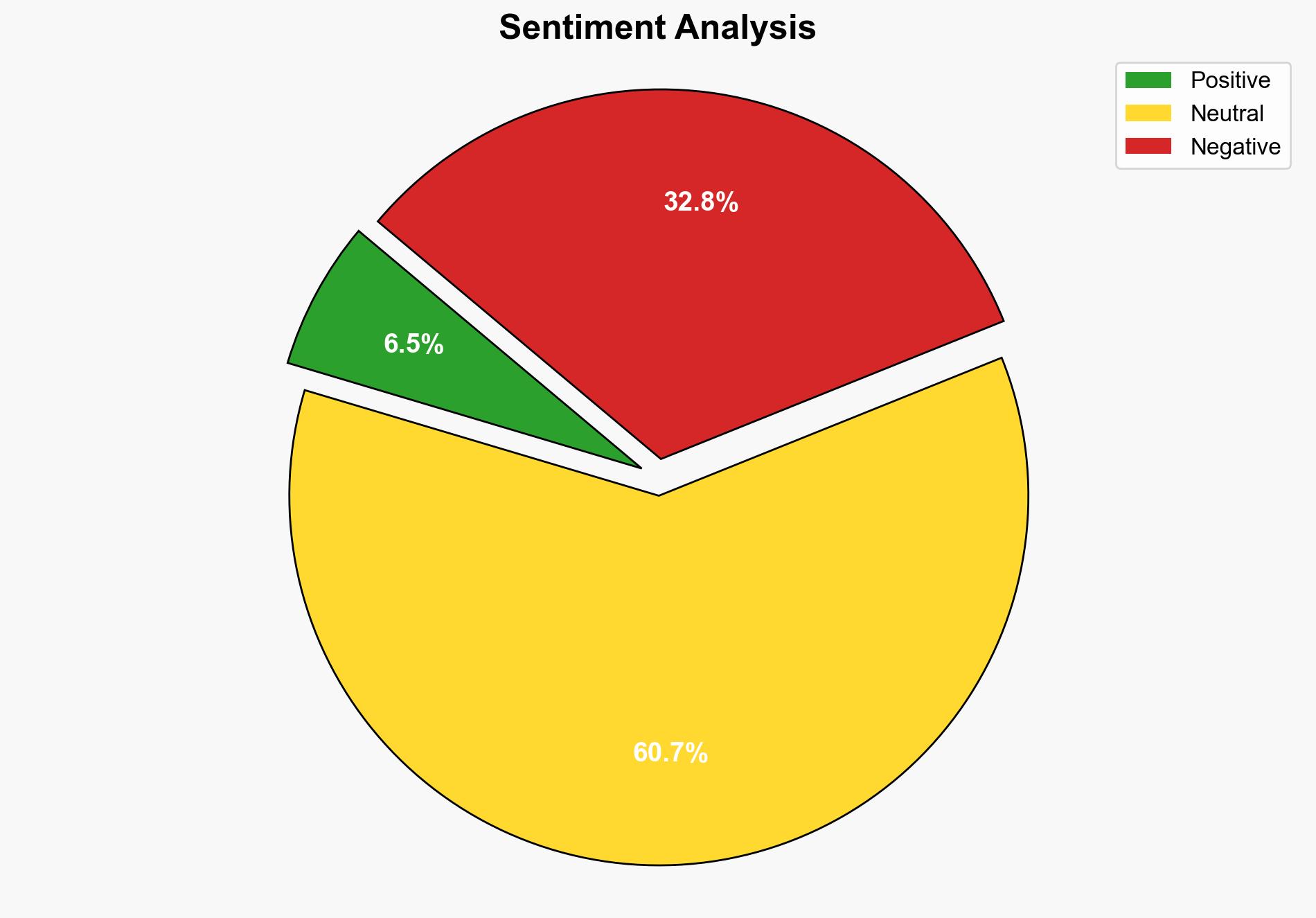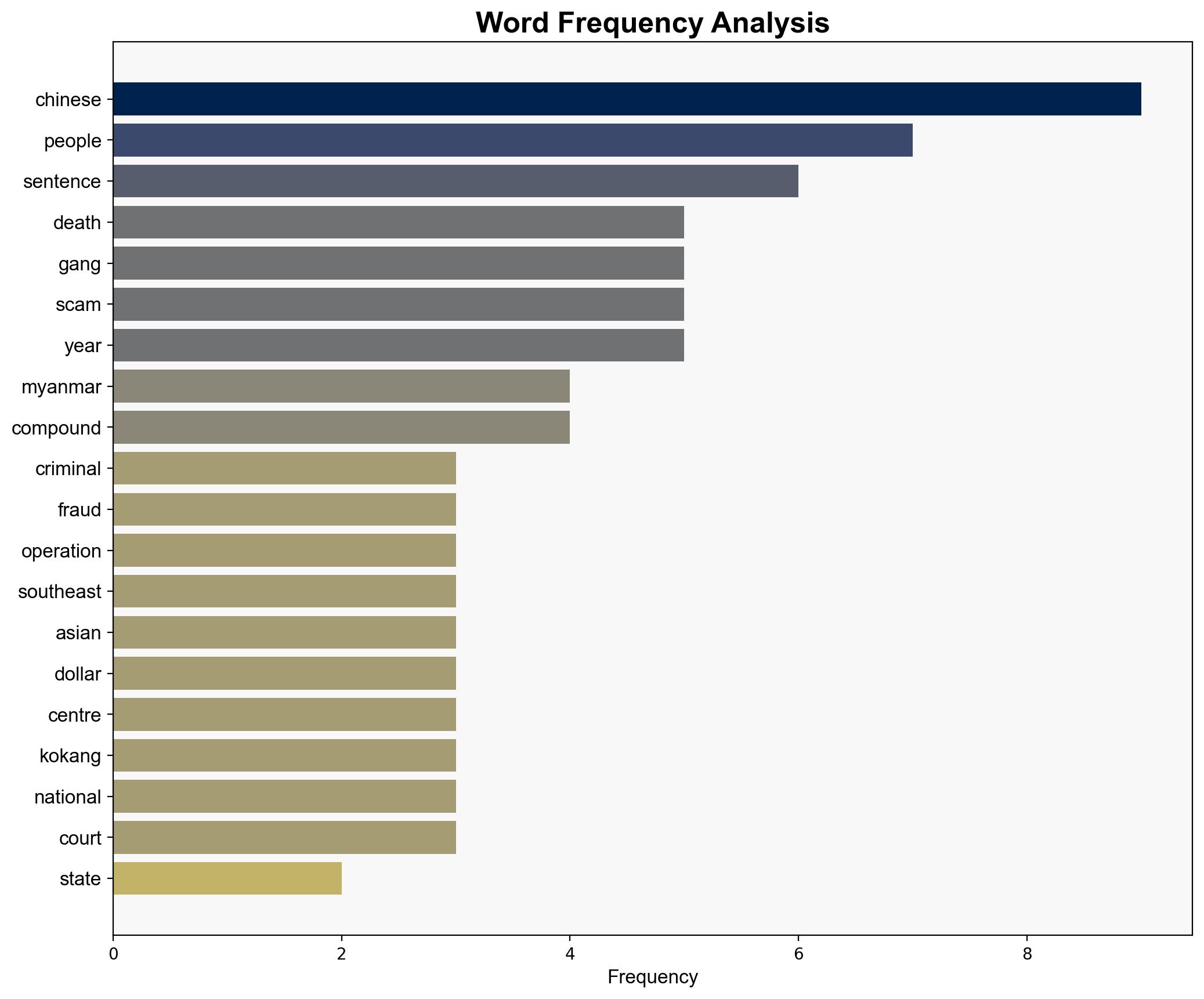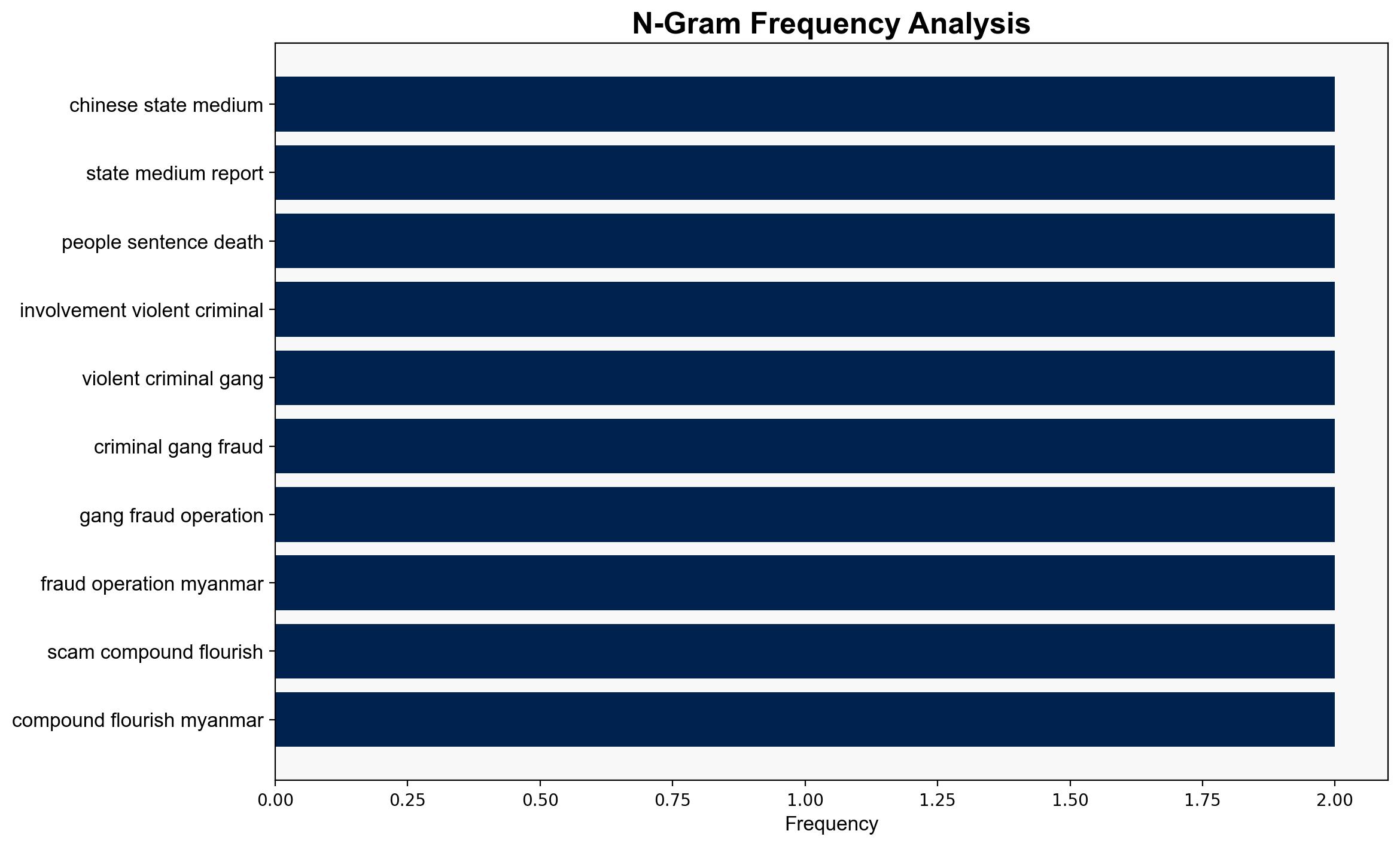Five sentenced to death in China for role in Myanmar scam centres – ABC News (AU)
Published on: 2025-11-04
Intelligence Report: Five sentenced to death in China for role in Myanmar scam centres – ABC News (AU)
1. BLUF (Bottom Line Up Front)
The most supported hypothesis is that China is intensifying its crackdown on transnational cybercrime networks to assert control and enhance regional cooperation. This aligns with recent actions and international cooperation efforts. Confidence level: Moderate. Recommended action: Increase monitoring of regional cybercrime trends and engage in multilateral dialogues to bolster cybersecurity frameworks.
2. Competing Hypotheses
1. **Hypothesis A**: China is using the death sentences to demonstrate a strong stance against cybercrime, aiming to deter future criminal activities and enhance its international image as a cooperative partner in combating global cyber threats.
2. **Hypothesis B**: The sentencing is primarily a domestic political maneuver to consolidate power and control over Chinese nationals involved in international criminal activities, with less emphasis on international cooperation.
Using ACH 2.0, Hypothesis A is better supported due to China’s recent actions in repatriating individuals and increasing cooperation with Southeast Asian nations, indicating a broader strategic initiative.
3. Key Assumptions and Red Flags
– **Assumptions**: Both hypotheses assume China’s actions are primarily driven by strategic interests rather than purely legal or moral considerations.
– **Red Flags**: Lack of detailed information on the specific charges and evidence against the sentenced individuals raises questions about transparency and potential political motivations.
– **Blind Spots**: The extent of cooperation from other Southeast Asian countries is not fully detailed, which could affect the overall effectiveness of China’s strategy.
4. Implications and Strategic Risks
– **Economic**: Disruption of scam centers may temporarily reduce illicit financial flows but could lead to adaptation and relocation of operations.
– **Cyber**: Increased pressure on cybercriminals may lead to more sophisticated and decentralized operations.
– **Geopolitical**: Strengthened regional cooperation could enhance China’s influence in Southeast Asia, but may also provoke resistance from nations wary of China’s intentions.
– **Psychological**: The use of severe penalties may deter some individuals but could also lead to increased resentment and anti-Chinese sentiment in affected regions.
5. Recommendations and Outlook
- Enhance intelligence-sharing mechanisms with Southeast Asian partners to track and dismantle cybercrime networks.
- Develop regional cybersecurity training programs to build local capacity and resilience.
- Scenario Projections:
- Best Case: Successful regional cooperation leads to a significant reduction in cybercrime activities.
- Worst Case: Cybercriminals adapt and expand operations, undermining regional stability.
- Most Likely: Incremental progress in combating cybercrime with ongoing challenges in coordination and enforcement.
6. Key Individuals and Entities
– No specific individuals mentioned by name in the source text.
7. Thematic Tags
national security threats, cybersecurity, counter-terrorism, regional focus





